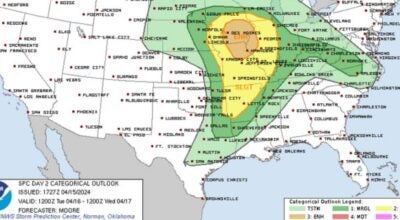Despite federal law, many domestic abusers keep their guns in Mississippi
Published 7:51 am Saturday, March 27, 2021
Last year, 23-year-old Phoenicia Ratliff of Canton was kidnapped and shot by her ex-boyfriend before he turned the gun on himself. Just a week earlier, he had been arrested on domestic violence and stalking charges.
Ratliff was one semester short of graduating from Jackson State University. She left behind a two-year-old little girl.
“To know her was to love her,” her mother Suzanne Ratliff said. “She was always smiling — you never knew what was really going on with her because she smiled through everything.”
Her tragic case illustrates the reality of a startling statistic: that the presence of a gun in a domestic violence situation increases the risk of homicide by 500%, according to the National Coalition Against Domestic Violence. And one national study on intimate partner homicides showed women are more likely to be murdered with a gun than all other means combined.
In Mississippi, where gun laws don’t mirror the prohibitions placed on domestic violence offenders in federal law, the statistic sounds a loud alarm bell.
Under federal law, anyone convicted of a domestic violence crime, whether a misdemeanor or felony, is not allowed to purchase or possess a firearm. The same goes for anyone with a domestic abuse protection order (a specific type of restraining order) against them. The law is commonly referred to as the Lautenberg Amendment.
Thirty states and the District of Columbia have their own laws mirroring these federal prohibitions, but Mississippi does not.
Across the state, officials are hesitant to take away offenders’ guns, and in some cases even charge abusers with other crimes, such as simple assault, to avoid the task, a top law enforcement official told Mississippi Today.
In Forest Municipal Court, for example, Judge Norman Brown has ordered guns returned to domestic violence offenders, according to four sources, including current and former employees of the police department.
“He has literally handed the suspects their guns back in court … and that’s with us showing there’s a history of a conviction, not just being charged,” said one former Forest police officer who now works with another agency.
The officer remembers one particularly violent individual who had multiple run-ins with the law, including assault on a law enforcement officer and at least one misdemeanor domestic violence conviction.
“He still said that’s (his) right to own a gun,” the officer said.
Brown declined to answer questions from Mississippi Today, saying he does not discuss cases.
In Grenada, guns are never seized from individuals convicted of domestic violence or who are the subject of domestic abuse protections, according to an individual who works in the county court system.
These crimes aren’t being prosecuted at the federal level, either. Since 2013, the U.S. Southern District of Mississippi’s office prosecuted only three cases dealing with the unlawful possession of a gun by someone who had previously been convicted of a domestic violence crime. There were no cases prosecuted for the illegal possession of a firearm for someone under a domestic violence protection order in that same time period.
“We do train both law enforcement and prosecutors on due process requirements associated with the Lautenberg Amendment,” said Colby Jordan, director of communications for the Attorney General’s office.
The office declined to answer any other questions about the issue, including whether Attorney General Lynn Fitch would or would not push lawmakers to develop an accompanying state law or what the office is doing aside from training on this issue.
Efforts to align state and federal laws have proved futile in recent years. Last year, the National Rifle Association and global pandemic stomped out even the earliest conversations, according to Luke Thompson, former president of the Mississippi Association of Chiefs of Police and the former chief of police in Byram.
The idea was to modify the existing state statute prohibiting possession of a weapon by a convicted felon by adding “or otherwise prohibited by” the relevant federal law.
“Any type of gun legislation in Mississippi is met with a great amount of resistance, and the (National Rifle Association) got a hint on that and bashed it real quick before we had a chance to have discussions with people and say, ‘This is what we’re trying to do,’” said Thompson.
The National Rifle Association did not respond to Mississippi Today’s request for comment on the issue.
After being painted as “pro-gun control” and supportive of “far-left” gun laws, Thompson penned a letter in February 2020 to Speaker of the House Philip Gunn and all House Republicans explaining his position.
He described a situation that captured the problems that arise because of the lack of a state law. Officers in his department responded to an incident in which a man fired a round from his gun through the ceiling of his home during an argument with his estranged wife. During the investigation, his officers discovered he had a domestic violence conviction and seized his weapons.
“Due to domestic offense being a state misdemeanor, federal authorities would not prosecute the possession case,” Thompson explained, going on to describe how he did not return the weapons to the offender, even when the offender and his lawyer began repeatedly contacting him over a five-year period and accusing him of illegally seizing the guns.
So Thompson set out to add the federal law language to the state law detailing which people cannot legally own or buy a gun.
“The intent was to give police chiefs an option when federal authorities would not assist and to keep local law enforcement officers safe,” he continued in his letter.
Although he never heard back from Gunn or other lawmakers, House Judiciary B Chairman Nick Bain said he’s aware of the issue Thompson was trying to address.
“I’m aware of an inconsistency there. I’m not opposed to talking about it, but I don’t want to go into a situation where we’re having more gun control than what is needed,” said Bain, a Republican from Corinth. “But I’m not opposed to having a discussion about it with our federal prosecutors, federal authorities and local state authorities.”
Bain’s counterpart in the Senate, Sen. Brice Wiggins responded similarly, saying he was open to a debate about possible legislation.
Advocates have kept their distance from the issue in recent years, though they see firsthand the failure to remove guns from the hands of abusers.
Wendy Mahoney, executive director of the Mississippi Coalition Against Domestic Violence, said she remembers having some talks years ago.
There was always pushback, she said. She remembers one person questioning where law enforcement would put the seized guns. Then last year, she saw what happened to Thompson when he brought the issue to lawmakers.
“I don’t think we have the support to even have an open conversation right now, even though we know … in most domestic violence situations, when a gun is involved, the correlation is very high with imminent danger and death,” Mahoney said. “That should be enough to have that conversation.”
The gap in federal and state law led former U.S. Attorney Mike Hurst to launch an initiative last year to combat what he said is a “lack of knowledge” among law enforcement and courts about federal restrictions on firearm ownership. The initiative, named “Operation Phoenicia” for Ratliff, continues today under the current U.S. attorney.
“Operation Phoenicia” involves educating and training law enforcement and judges about federal domestic violence laws in addition to other efforts to crack down on domestic violence offenders with guns.
Hurst, along with his then counterpart in the northern district of the state, vowed to prioritize prosecution of these crimes, and the efforts continue under his successor, acting U.S. Attorney Darren LaMarca. The plan is to begin by identifying individuals in the city of Jackson who currently have a domestic violence protective order or a domestic violence misdemeanor and calling them into the office to put them on notice.
“We tell them it is a federal crime for them to possess a firearm and we tell them, ‘If we catch you, we will prosecute you federally,’” Hurst said.
They are also issuing what is referred to as “call-outs,” or working with the Bureau of Alcohol, Tobacco, Firearms and Explosives to put domestic violence victims on notice if their abuser is attempting to buy a gun.
But as of March, no such cases have been prosecuted yet, nor have any call-ins taken place due to the pandemic, according to LaMarca. Call-outs have been ongoing through the Bureau of Alcohol, Tobacco, Firearms and Explosives.
The office is also working to ensure local state and local officials understand certain standards must be met in a domestic violence crime in order for federal prosecution to occur. For example, one deals with whether there was use or attempted use of force, while another deals with the type of relationship the victim has with the perpetrator.
LaMarca said he is collaborating with state and local officials to more fully identify certain specifics of domestic violence offenses, the relationship between the two involved individuals and the amount and type of involvement the offender has with the legal system. By doing that, officials can better understand whether the offense in question falls under the Lautenberg Amendment.
Mahoney, whose organization works with domestic violence shelters and victims, said the mixed messages and lack of enforcement around domestic abusers with guns creates fear and distrust in victims.
“If you’re not taking away their firearm, you’re invoking more fear” in an already fearful victim, she said. “It makes the victim question, ‘Is the system really on my side to help me?’”
This story is republished with permission from Mississippi Today. Click here for a link to the original story.






